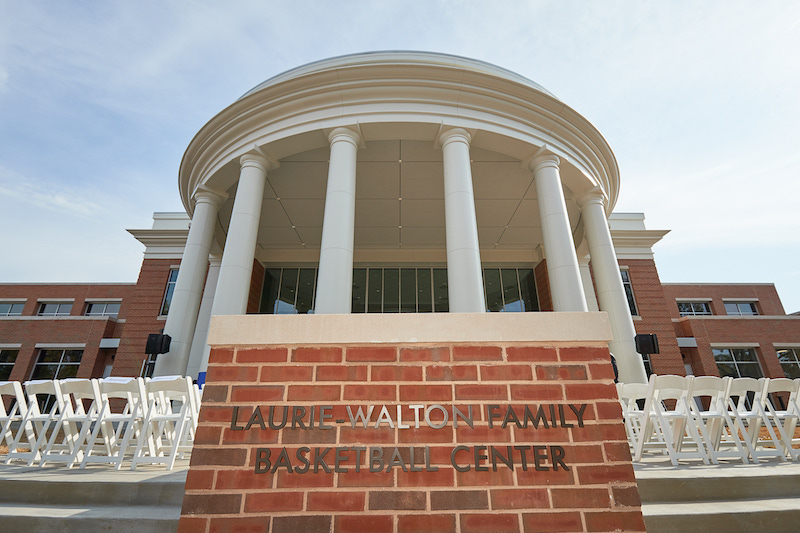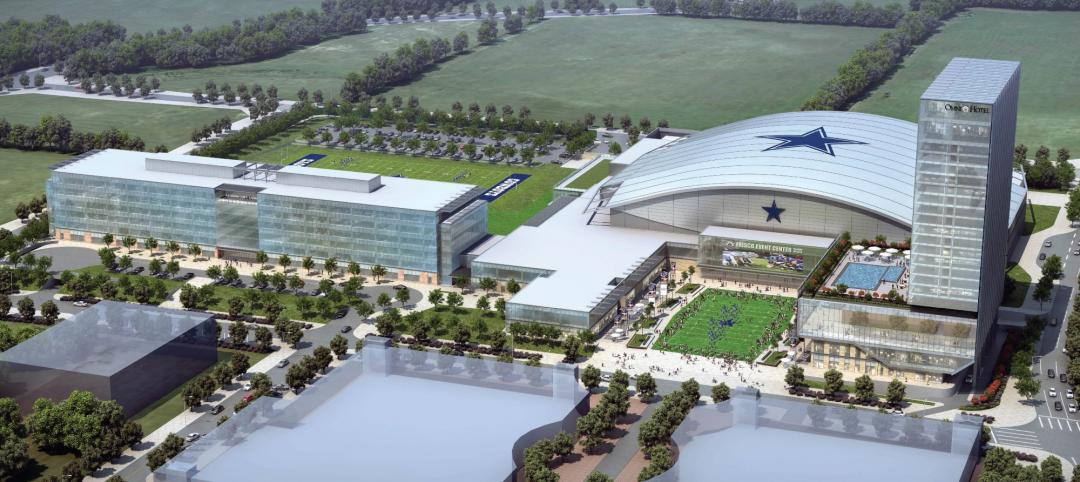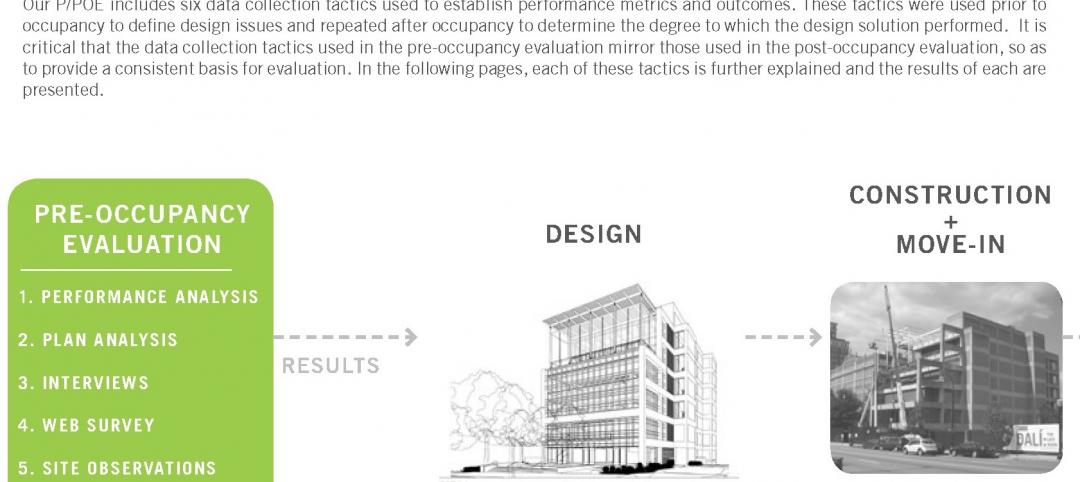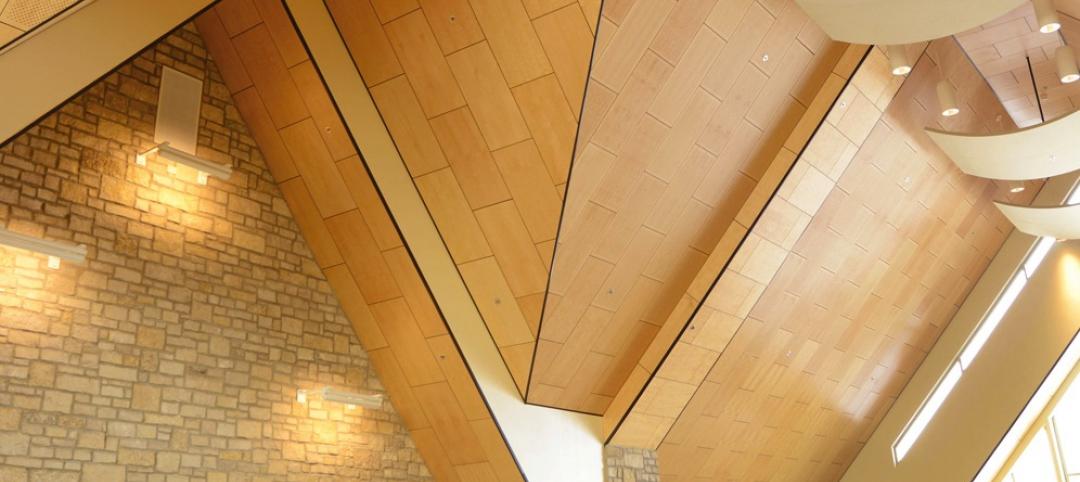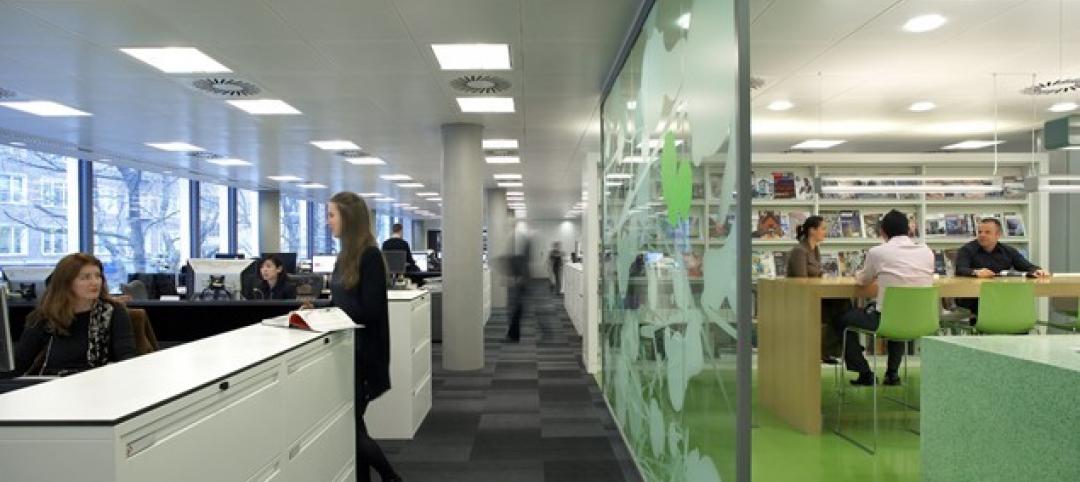The Memphis Tigers have a new primary home for the men’s basketball program that features a robust offering of amenities and technology combined with student-athlete involvement and fan engagement.
The AECOM-designed Laurie-Walton Family Basketball Center is located on the University of Memphis’s Park Avenue campus and includes everything one would expect in a practice facility including a practice gym with a court much larger than the normal size, a locker room, coaches’ offices, and training facilities. The center also includes a commitment to donor and VIP cultivation, a public Hall of Traditions, academic support for multiple teams, and enhanced technology and connectivity throughout the building.
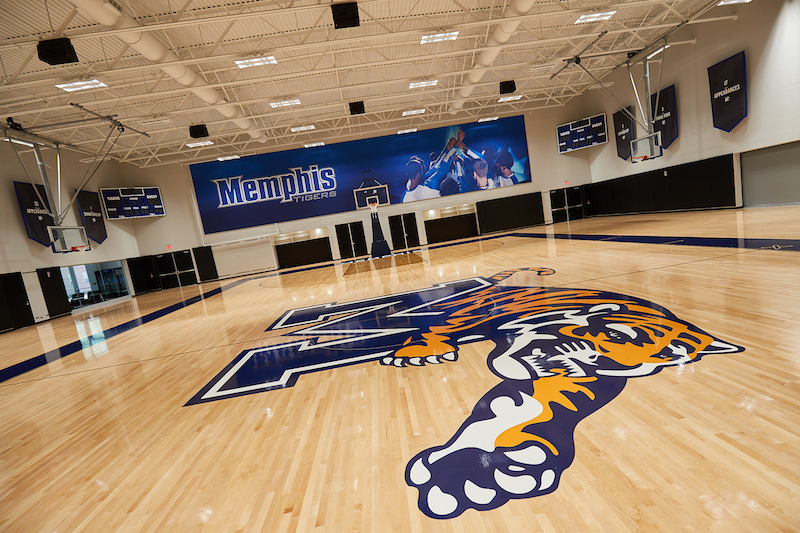 Interior basketball court in the new Laurie-Walton Family Basketball Center.
Interior basketball court in the new Laurie-Walton Family Basketball Center.
The public Hall of Traditions provides Tigers fans a look back on the history of the program and includes artifacts and keepsakes from the various eras of Memphis basketball. The hall includes space for future awards and championships.
Hydrotherapy equipment, hot and cold tubs, a sauna, and expanded taping stations are featured in various training areas throughout the facility. An academic support area serves as a hub for several sports on the Park Avenue campus and helps reduce time demands on student-athletes.
The Build Team also included Burr & Cole Engineering, Advent, Diversified, and Farris Bobango Branan PLC.
Related Stories
| Oct 30, 2014
New hotel to be developed at future Dallas Cowboys World Headquarters
The Omni property will be one of the only full-service upscale hotels in the area, and serve as a cornerstone of the mixed-use development, which will be anchored by the Dallas Cowboys World Headquarters and Frisco’s Multi-Use Event Center.
| Oct 20, 2014
Singapore Sports Hub claims world's largest free-spanning dome
The retractable roof, which measures a whopping 1,017-feet across, is made from translucent ETFE plastic panels supported with metal rigging that arches over the main pitch.
| Oct 16, 2014
Perkins+Will white paper examines alternatives to flame retardant building materials
The white paper includes a list of 193 flame retardants, including 29 discovered in building and household products, 50 found in the indoor environment, and 33 in human blood, milk, and tissues.
| Oct 15, 2014
Harvard launches ‘design-centric’ center for green buildings and cities
The impetus behind Harvard's Center for Green Buildings and Cities is what the design school’s dean, Mohsen Mostafavi, describes as a “rapidly urbanizing global economy,” in which cities are building new structures “on a massive scale.”
| Oct 12, 2014
AIA 2030 commitment: Five years on, are we any closer to net-zero?
This year marks the fifth anniversary of the American Institute of Architects’ effort to have architecture firms voluntarily pledge net-zero energy design for all their buildings by 2030.
| Sep 24, 2014
Architecture billings see continued strength, led by institutional sector
On the heels of recording its strongest pace of growth since 2007, there continues to be an increasing level of demand for design services signaled in the latest Architecture Billings Index.
| Sep 22, 2014
4 keys to effective post-occupancy evaluations
Perkins+Will's Janice Barnes covers the four steps that designers should take to create POEs that provide design direction and measure design effectiveness.
| Sep 22, 2014
Sound selections: 12 great choices for ceilings and acoustical walls
From metal mesh panels to concealed-suspension ceilings, here's our roundup of the latest acoustical ceiling and wall products.
| Sep 17, 2014
Atlanta Braves break ground on mixed-use ballpark development
SunTrust Park will be constructed by American Builders 2017, a joint venture between Brasfield & Gorrie, Mortenson Construction, Barton Malow Company, and New South Construction.
| Sep 9, 2014
Using Facebook to transform workplace design
As part of our ongoing studies of how building design influences human behavior in today’s social media-driven world, HOK’s workplace strategists had an idea: Leverage the power of social media to collect data about how people feel about their workplaces and the type of spaces they need to succeed.


